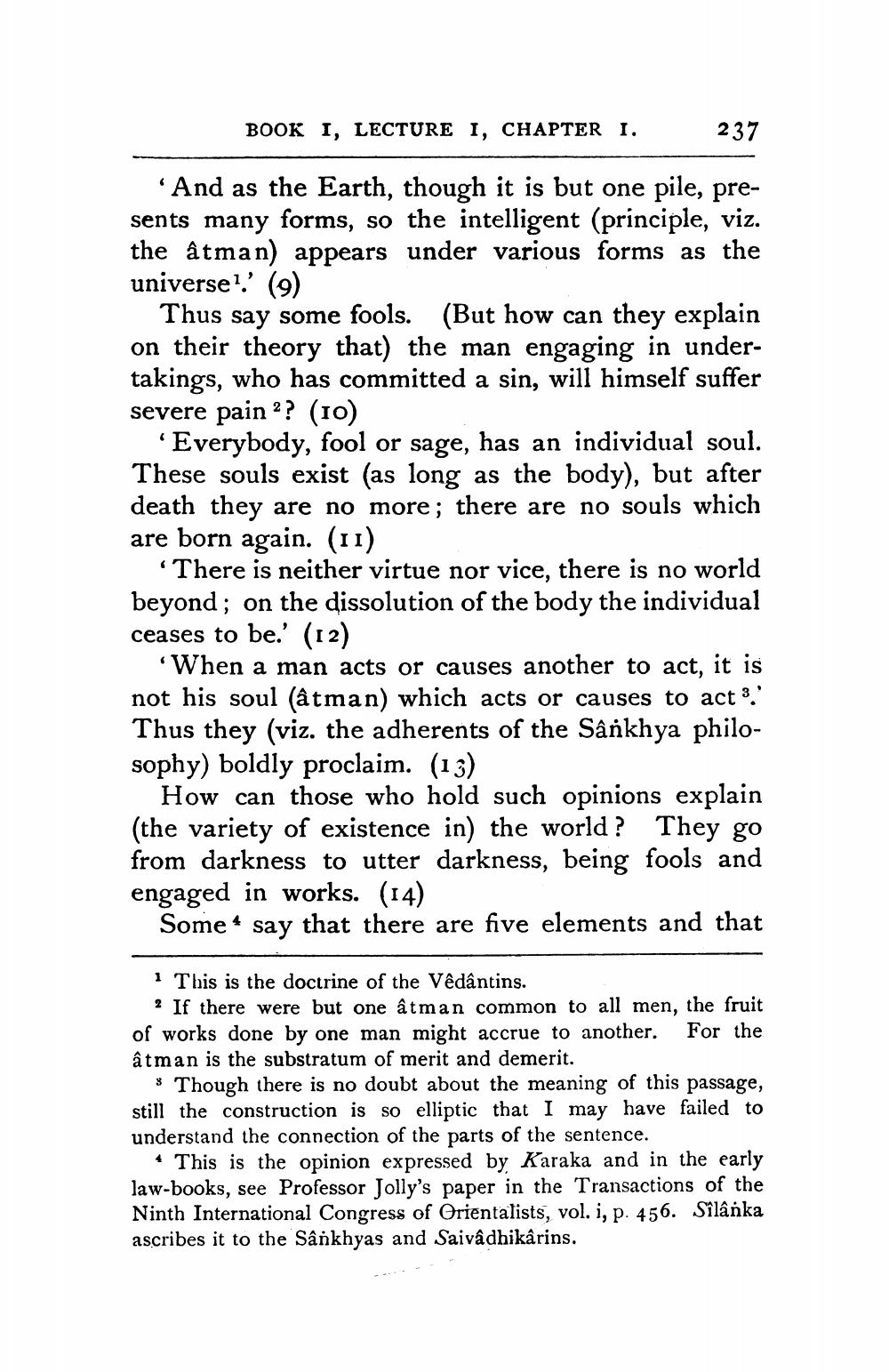________________
BOOK I, LECTURE I, CHAPTER 1.
237
And as the Earth, though it is but one pile, presents many forms, so the intelligent (principle, viz. the âtman) appears under various forms as the universe?' (9)
Thus say some fools. (But how can they explain on their theory that) the man engaging in undertakings, who has committed a sin, will himself suffer severe pain ?? (10)
'Everybody, fool or sage, has an individual soul. These souls exist (as long as the body), but after death they are no more; there are no souls which are born again. (11)
*There is neither virtue nor vice, there is no world beyond; on the dissolution of the body the individual ceases to be.' (12)
When a man acts or causes another to act, it is not his soul (âtman) which acts or causes to act 3.' Thus they (viz. the adherents of the Sânkhya philosophy) boldly proclaim. (13)
How can those who hold such opinions explain (the variety of existence in the world? They go from darkness to utter darkness, being fools and engaged in works. (14)
Some + say that there are five elements and that
1 This is the doctrine of the Vêdântins.
? If there were but one âtman common to all men, the fruit of works done by one man might accrue to another. For the âtman is the substratum of merit and demerit.
$ Though there is no doubt about the meaning of this passage, still the construction is so elliptic that I may have failed to understand the connection of the parts of the sentence.
4 This is the opinion expressed by Karaka and in the early law-books, see Professor Jolly's paper in the Transactions of the Ninth International Congress of Orientalists, vol. I, p. 456. Silâńka ascribes it to the Sânkhyas and Saivadhikârins.




